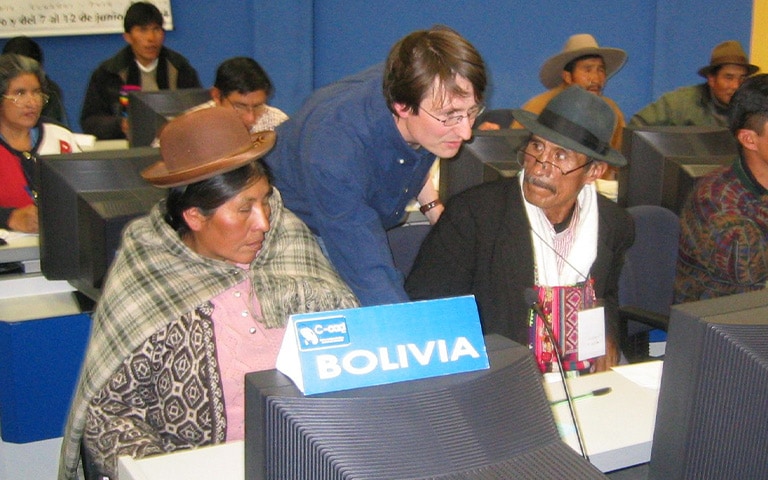This site uses cookies. By continuing to browse the site you are agreeing to our use of cookies. Read our privacy policy

Marcos Fernández-Gutiérrez, Associate Professor, Department of Economics, University of Cantabria, Spain

Public services, including utilities, play a crucial role in addressing the digital divides affecting wealthier versus less developed regions, and cities versus rural areas. Public infrastructure services, including energy, water, and telecommunications, promote equality of opportunity and foster competitiveness and sustainable development.
A study I conducted with Judith Clifton and Daniel Díaz-Fuentes in 2016, published in Regional Studies, found deep gaps in the availability of different services in the European Union (EU), including electricity, gas, water, fixed telephony, mobile telephony, and the internet. These gaps were especially glaring in mobile telephony and the internet, and they negatively affected residents in rural areas and deprived regions.
Fortunately, since that paper was published, EU policies have begun promoting access to mobile telephony and the internet in vulnerable territories where service provision is less economically profitable and incentives or other policy actions are needed to ensure adequate service provision. In the last few years, connectivity in rural and less-populated areas has improved in the EU, and telecommunications services have begun enhancing economic opportunities and improving life quality for both citizens and enterprises in these areas.
But significant work remains in leveraging the potential of telecommunications services for promoting equity in other public services. Education, for example, is a public service crucial to ensuring equality of opportunity and upward social mobility. Information and Communication Technologies (ICT) have rapidly and intensively been incorporated into education, a trend magnified by measures to impose social distancing during the COVID pandemic.
Even so, there is no clear evidence that the use of ICT at school improves students’ achievement levels. ICT can improve access to information and resources for learning, and can help monitor the academic progress of individual students. But it can also distract students, restrict human interaction and creativity, and require teachers and schools to ensure that students use tech in the right ways.
Increasingly, experts are suggesting that the net beneficial or detrimental effect of ICT on students’ achievement will depend on the type of activities undertaken, or the way in which ICT is used. In an empirical evaluation of ICT use at schools in Spanish Autonomous Communities based on data from the OECD’s Program for International Student Assessment, Gregorio Gimenez, Jorge Calero and I found that ICT use had no significant effects on students’ achievement in reading and maths, but had a positive effect on students’ achievement in science, a domain more favorable for exploiting the potential benefits of ICT.
In another paper published in Socio-Economic Planning Sciences, Luis Vargas-Montoya, Gregorio Gimenez and I showed that the effects of ICT use on students’ achievement were less favorable in developing countries than in developed ones, where higher levels of human capital and ICT skills, and better ICT physical and pedagogical resources, existed.
In an ongoing paper, Alejandro Bedia, Gregorio Gimenez and I are studying whether the relationship between students’ achievement and both access to and use of ICT at schools differs between Spanish urban and rural areas. Spain is a country characterized by depopulation and is an economic laggard in rural areas. This is reflected by lower student achievement in rural schools compared with those in cities. Interestingly, we find that the effect of ICT use on students’ achievement is more favorable in rural areas than in urban areas.
We conclude that ICT use can play a positive role in reducing the educational gaps between rural and urban areas, as it helps overcome physical distance and improves the amount and quality of learning resources available in the former.
However, these efforts require not just access to a larger amount of ICT in rural schools (which is found to be, per se, ineffective), but effective policies for promoting adequate use of ICT, including ensuring sufficient speed of internet connection and availability of technical support.
As shown, public infrastructure services (and, in particular, telecommunications services) play a key role in territorial imbalance. Policy lessons and recent research show how important is to tackle the digital divide as it affects access to, and use of, telecommunications services for improving equality of opportunities. Effective use of telecommunications services in vulnerable territories is not only crucial for ensuring economic activity and population settlement in these areas, but also an important tool for boosting economic and social opportunities for their residents.





















Contact us! transform@huawei.com
